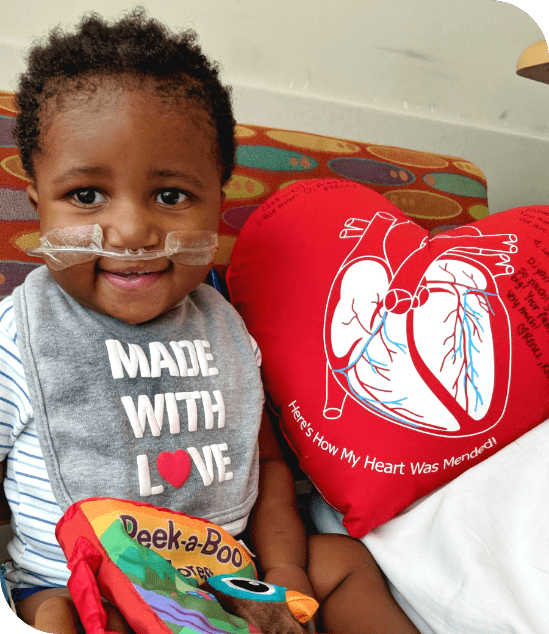Hospice Care
Overview
Hospice services are available to individuals who choose to forgo curative treatment. The typical hospice patient has a prognosis or life expectancy of six months or less, if the illness follows its expected course. Hospice offers help and support to patients and their loved ones.
Your Care Team
Registered
Nurse (RN)
Registered
Nurse (RN)
Provides care, which includes assessment, planning, and evaluation of patients needs. The nurse maintains consistent communication with the physician and hospice team.
Certified Nursing
Assistant
Certified Nursing
Assistant
Helps with personal needs such as bathing, feeding, dressing, basic housekeeping, as well as companionship.
Medical Social
Worker
Medical Social
Worker
Helps make decisions about care options available to patients, provides guidance on advance care directives, financial concerns, and other emotional needs.
Hospice Physician
Hospice Physician
Provides medical direction to the team.
Chaplain
Chaplain
Available for general spiritual support and guidance that honors the patient’s beliefs and values.
Grief & Loss
Counselor
Grief & Loss
Counselor
Provides compassionate support through the grieving experience; and maintains contact with the patient’s caregivers and loved ones.
Volunteer
Volunteer
Available to support in a variety of ways including personal care, errands, light housekeeping, assistance with meal preparation, companionship, and much more.
FAQ
Hospice care is the set of services available to patients who no longer benefit from, or choose to forgo, curative treatment. The typical hospice patient has a prognosis or life expectancy of six months or less, if the illness follows its expected course. Most patients receive care at home or in a long-term care setting like an assisted living community or nursing home. Services are provided by a team of qualified professionals who provide medical care and support services, not only to the patient but also to the patient’s family and caregivers as well.
Georgia Hospice Care seeks to provide hospice services that enable patients and their loved ones to focus on days filled with life instead of illness. Hospice care has four levels: routine home care, respite care, continuous care, and general inpatient care. We can provide services wherever the patient lives, whether that’s a nursing home, assisted living community, hospital, or the patient’s own home.
Hospice care and palliative care both provide comfort to patients by helping them manage pain and other symptoms. Both help support patients and their families by seeking to meet their physical, emotional, and spiritual needs. Although palliative care and hospice care share several important similarities, there are also important distinctions between the two.
Palliative care can begin at diagnosis and be administered alongside curative treatment. Hospice care is compassionate care that prioritizes the quality of life for patients with a life expectancy of six months or less. Hospice care is relief-based rather than curative, and helps patients manage pain and other symptoms, with an emphasis on providing dignity and supporting a peaceful end-of-life experience.
The decision to begin hospice care can be difficult, but it’s important to keep in mind that hospice care’s purpose is to improve quality of life for more meaningful time with loved ones. Patients who may benefit from hospice care are those in the final stages of chronic lung disease, congestive heart failure, AIDS, cancer, cardiovascular disease, Parkinson’s disease, Alzheimer’s and dementia, and other life limiting, terminal illness.
Below are some signs it might be time for you to consider hospice care:
- Frequent hospitalizations or trips to the ER
- Recurrent infections
- Uncontrolled pain, shortness of breath, nausea, or vomiting
- Decreasing alertness or ability to focus
- Inability to perform tasks of daily living without help
- Increased sleeping or confusion
- Quick decline in health, even with aggressive treatments
If the above signs apply to you or a loved one, it may be time to consider hospice care.
Yes, we will work closely with the attending medical professional to help you or your loved one receive the care they need.
All members of each Georgia Hospice Care care team work together, utilizing their special training to meet the needs of the patient, their caregivers, and loved ones. The hospice care team is an interdisciplinary group composed of a nurse, hospice aide, social worker, chaplain, volunteer, and other members of the Georgia Hospice Care team.
Hospice offers help and support to the patient and their loved ones, 24 hours a day, seven days a week. For hospice patients, help is just a phone call away.
Georgia Hospice Care accepts commercial insurance as well as Medicare and Medicaid, with coverage varying by payer source. Payment for services not covered by insurance is based on the patient’s or family’s ability to pay. It is our intent that the ability to pay not be a barrier to receiving quality care. If needed, a financial assessment may be requested to assess eligibility for financial assistance.
Contributions from individuals, foundations, corporations, communities of faith, and civic organizations help us provide care for anyone who needs our services, and to provide valued programs beyond those covered by insurance, such as grief care and community education.
Please ask your insurance provider to learn more details regarding your coverage.
The emotional and psychological consequences of losing a loved one can never be overlooked. Grief counseling is designed to help individuals cope with and process residual feelings of loss. Our grief support program encompasses a range of counseling services for friends and family members who have lost a loved one, including one-on-one and group counseling. Within five days of a loved one’s passing, we contact the family to do a grief assessment and determine how Georgia Hospice Care can best support them. We maintain contact with families for at least 13 months after their loved one passes — and longer if they need it — to ensure they know they have a support system in place.
Yes, chaplains and spiritual support services are available. We know that the end-of-life journey can often cause spiritual and emotional distress for both patients and families. Our hospice chaplains are available to encourage, offer support, and listen as patients and their family members cope with the painful and sometimes confusing issues related to end-of-life care. Our chaplains offer practical and spiritual guidance during this difficult time without enforcing religious boundaries. Our goal is to offer spiritual support to anyone who wants it, regardless of their religious affiliations.
Georgia Hospice Care is proud to provide care in all 159 counties in Georgia. If you or a loved one are in need of comfort care for a life-limiting illness, our team is prepared to walk alongside you to meet your needs. We’re with you no matter where you are.
Making the Decision
Is Hospice the Answer?
Making the decision to choose hospice care is not easy. When you decide hospice is the right choice for your family, you give our team the privilege of helping you through your journey. Our goal is to help every patient to live each day with love, dignity, comfort, and as pain-free as possible. To help you determine if hospice care is right for you or a loved one, we developed this brief assessment to serve as a starting point. You should also consult the patient’s physician to discuss the best options.
Take the quiz
Pediatric Care
Hands of Hope
Our pediatric care program offers palliative and concurrent care for any child experiencing a life-limiting illness. We provide support for the physical, emotional, and spiritual needs of children and their families so they can focus on what matters most.

"Because of the care Bennett received from Hands of Hope, our son was able to stay home for 247 days before having to be readmitted to the hospital. For us, that was impressive! We were able to stay at home with our son, where we all wanted to be, and know that he was still receiving the best care possible."
— Bennett’s Mom
Resources
Inquiry Form
Need More Information
One of the hardest decisions families and caregivers can make is whether to seek hospice care for a loved one with a life-limiting illness. This time can be emotional and full of uncertainty. Many families don’t realize that placing loved ones into professional treatment can have benefits for the patient as well as the whole family. One of the most shared sentiments from families is that they wish they had chosen hospice care sooner. If you have questions or would like a consultation, please complete this form and a member of our team will connect with you.




